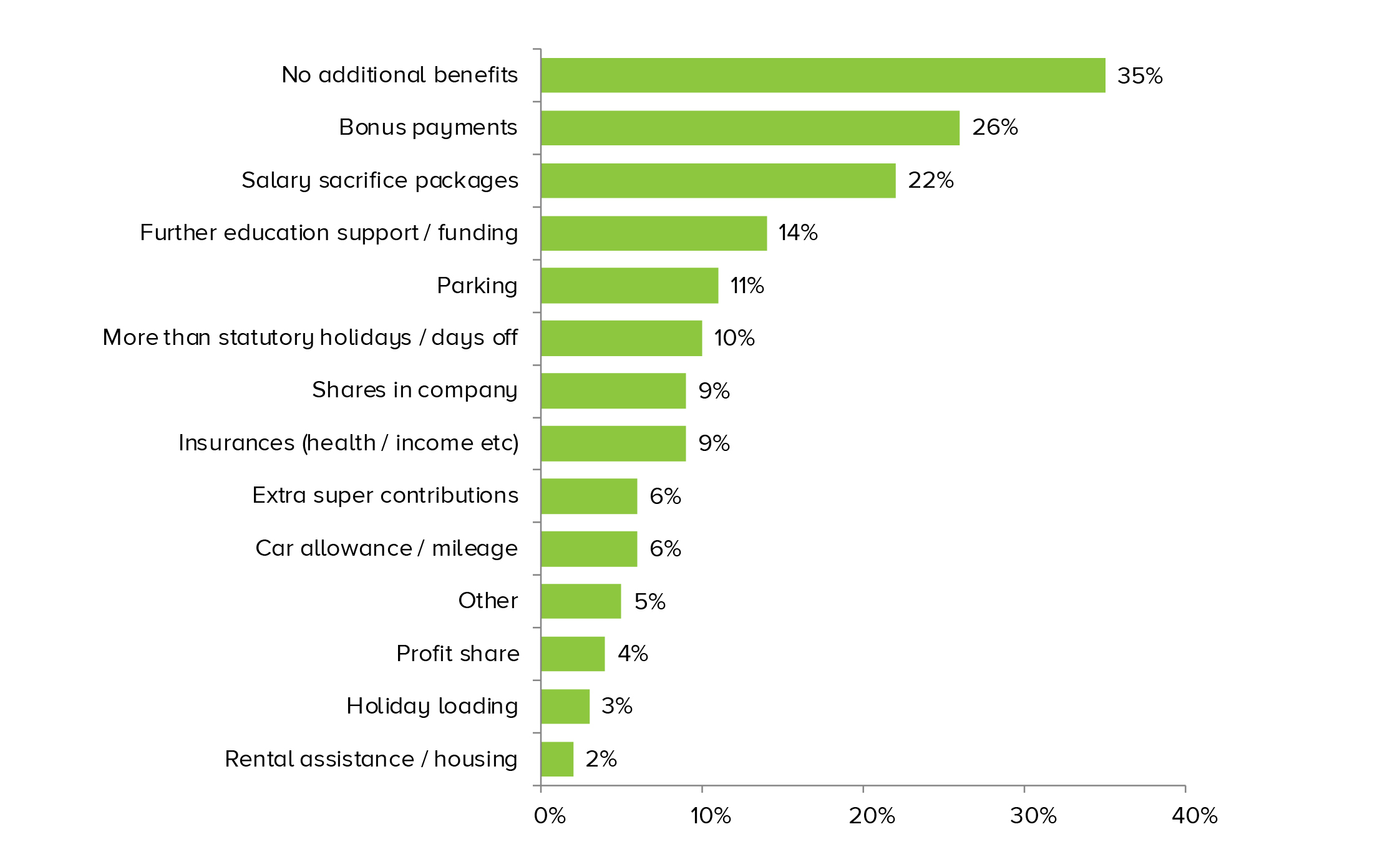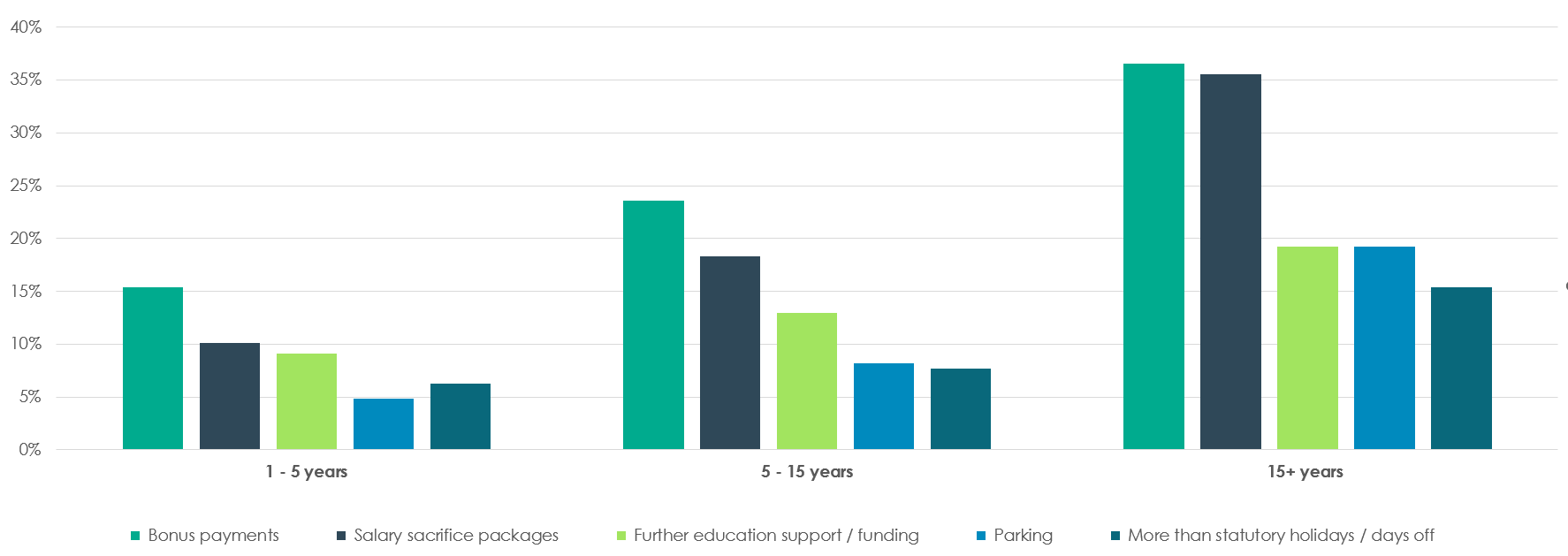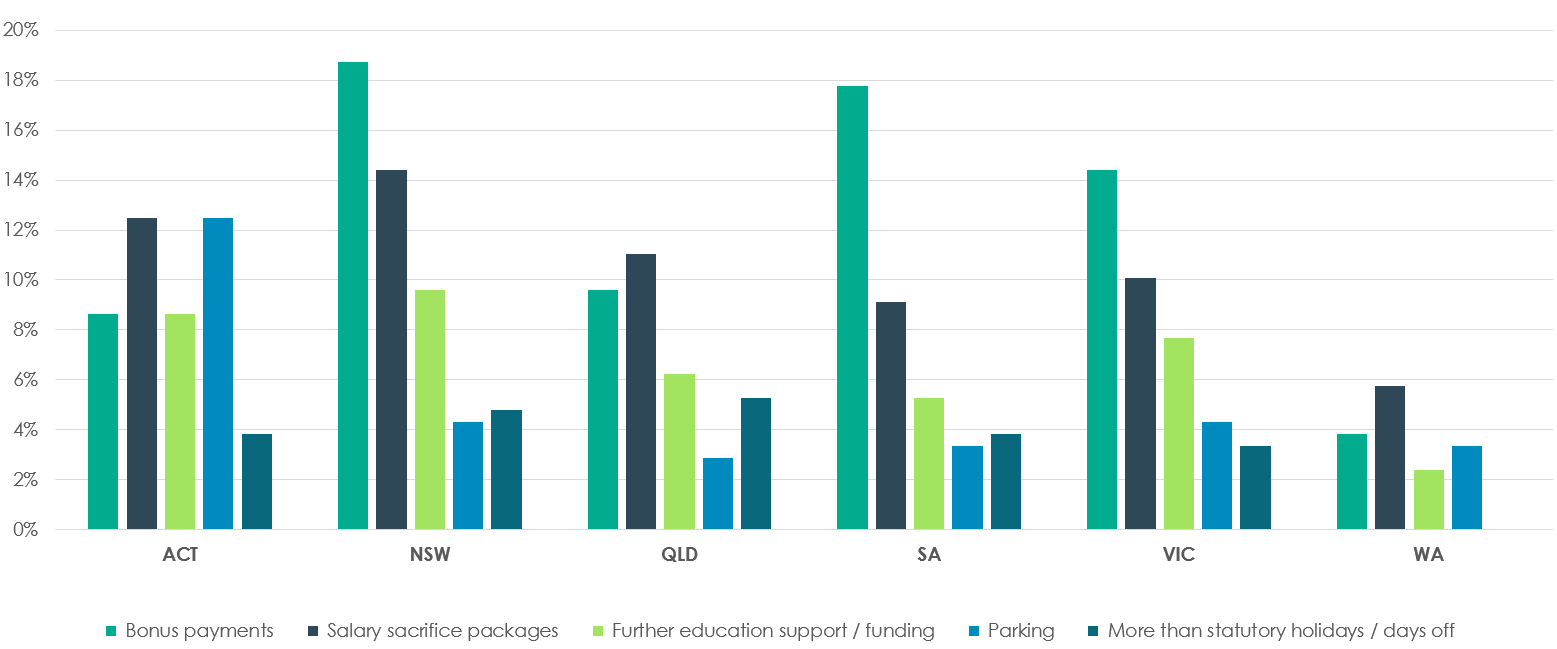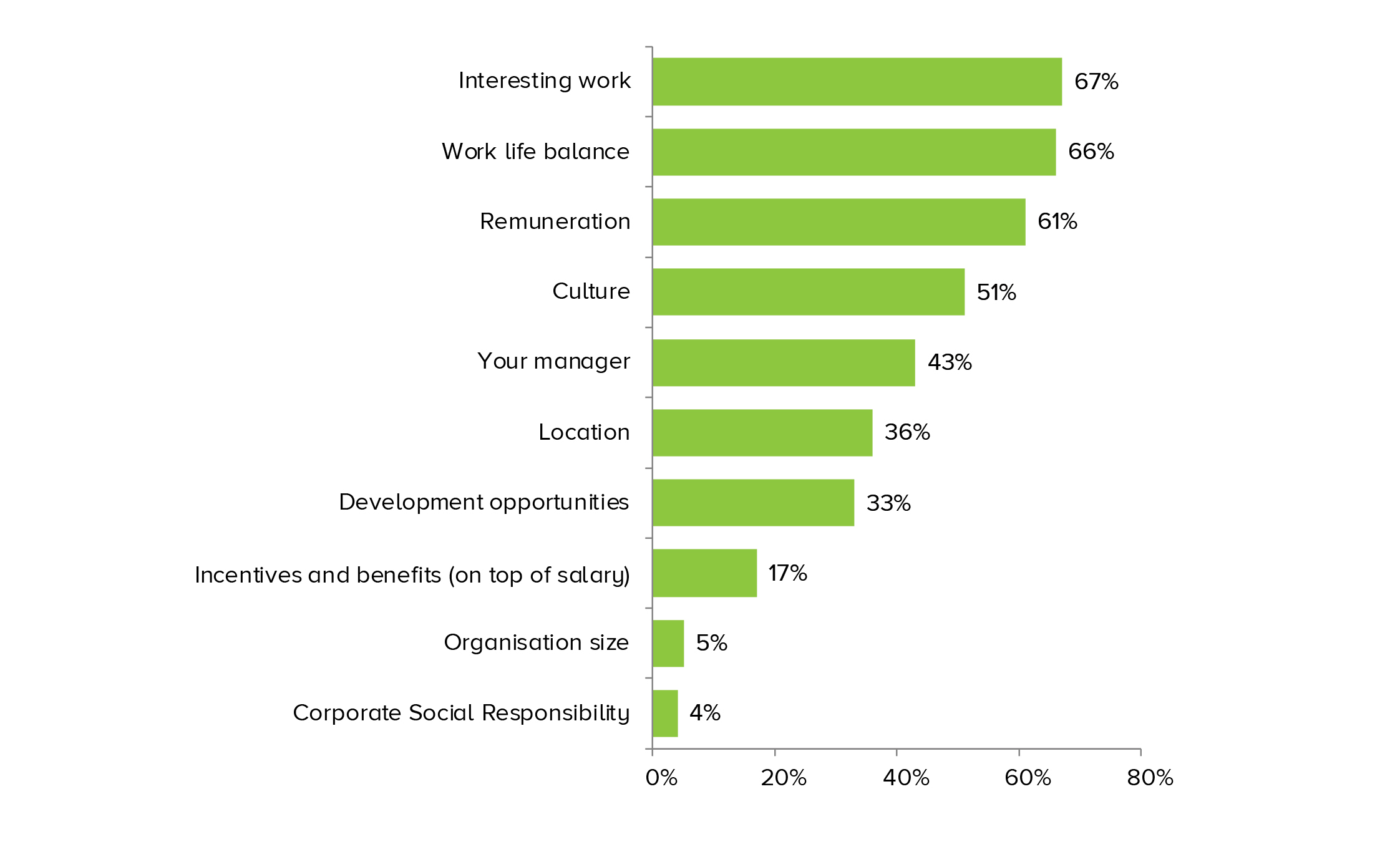
Key Points:
Increasing focus on Employee Value Proposition (EVP) within the defence industry
EVP is a crucial factor in employee satisfaction
Different EVP priorities exist during the attraction and retention phases
Securing top talent in the defence industry is becoming increasingly challenging. The convergence of multiple acquisition and sustainment projects, the uncertainty after the release of the AUKUS, the DSR and IIP, competition from adjacent industries, as well as the federal government’s intent to grow the APS and reduce the use of contractors has magnified the overall effects of the DSR for Professional Service Provider (PSP) companies. Aggressive poaching of PSP staff by the CoA and greater scrutiny of PSP workers have added to the challenges faced by employers in this sector. Defence industry employers find it increasingly difficult to attract and retain suitably skilled workers without key differentiators. Forward-thinking organisations are creating attractive and robust EVP offerings to attract and retain the needed talent.
EVP and Talent Attraction
In this fiercely competitive market, what are defence companies doing to attract top talent? According to the latest edition of our Defence Industry Insights, salaries increased by 3.5%, the largest increase since 2018. However, salaries cannot continue to rise indefinitely. Alternative offerings are not just beneficial, they are essential to filling the roles the industry projects we’ll need over the next 10 years.
In this market, a strong employer brand and a well-crafted EVP are not just beneficial but essential. They play a pivotal role in attracting and retaining the right talent. As defence industry employers and HR professionals, your role in crafting a compelling EVP is crucial. To understand the difference between EVP and employer brand, check out this blog.
Creating an Effective EVP
Understanding the non-monetary benefits that defence industry employers offer, such as further education opportunities and a healthy work-life balance, is a solid foundation for creating a robust EVP. Since 2019, the percentage of people receiving these additional benefits has remained steady at 65%. Further education benefits have seen a significant rise from 2% in 2019 to 14%. Currently, the top three additional benefits are bonus payments, salary sacrifice packages and further education, with parking as a notable fourth at 11%.

[Graph 1 showing types of additional benefits received by workforce survey respondents]
Attraction vs. Retention
Our research shows different non-monetary priorities for job attraction and retention. Interesting work and Flexible work-life balance arrangements are the top factors for attracting candidates, followed by culture.
Bonuses and salary sacrificing are the most common additional benefits defence-skilled candidates receive, at 35% and 26%, respectively. Funding for further education, company shares, parking, additional days of leave, and extra super contributions are also prevalent.
TOP 5 ADDITIONAL BENEFITS RECEIVED | BROKEN DOWN BY TENURE IN INDUSTRY

[Graph 2 showing the top 5 additional benefits received by tenure]
TOP 5 ADDITIONAL BENEFITS RECEIVED | BROKEN DOWN BY STATE

[Graph 3 showing the top 5 additional benefits received by state]
EVP and Job Satisfaction
The Defence Industry Insights – Tenth Edition suggests that strong additional benefits as part of an EVP strategy are crucial for overall employee satisfaction. The top three factors impacting job satisfaction have remained the same since 2022: interesting work, work-life balance, and remuneration. Culture is also becoming increasingly important, with 51% of respondents listing it in their top five, up steadily over the last four years.
We asked, “What has the most impact on your job satisfaction?”
JOB SATISFACTION

[Graph 4 showing factors impacting job satisfaction]
Competing for Top Talent
Demand from adjacent industries, which have also received significant federal government funding, further compounds the competition for top talent. Nearly $72 billion has been allocated for general government sector infrastructure funding over four years to FY2024-26. These industries will require many similarly skilled workers to those in the defence industry, contributing to increased demand.
Ensuring Your Organisation Can Compete
As the competition for top-quality defence industry talent intensifies, what does your company need to offer to stand out? At Kinexus, we have over 30,000 conversations with people in the defence sector every year, so we understand what premium talent is looking for when considering potential roles.
Your organisation must have the right EVP strategy to attract and retain the best employees to help grow your business.
Reach out and speak to our expert consultants to ensure your company is well-placed to capitalise on future business growth opportunities within the Australian defence industry.
You can also read more of our expert insights by downloading the complete Defence Industry Insights - Tenth Edition here.





